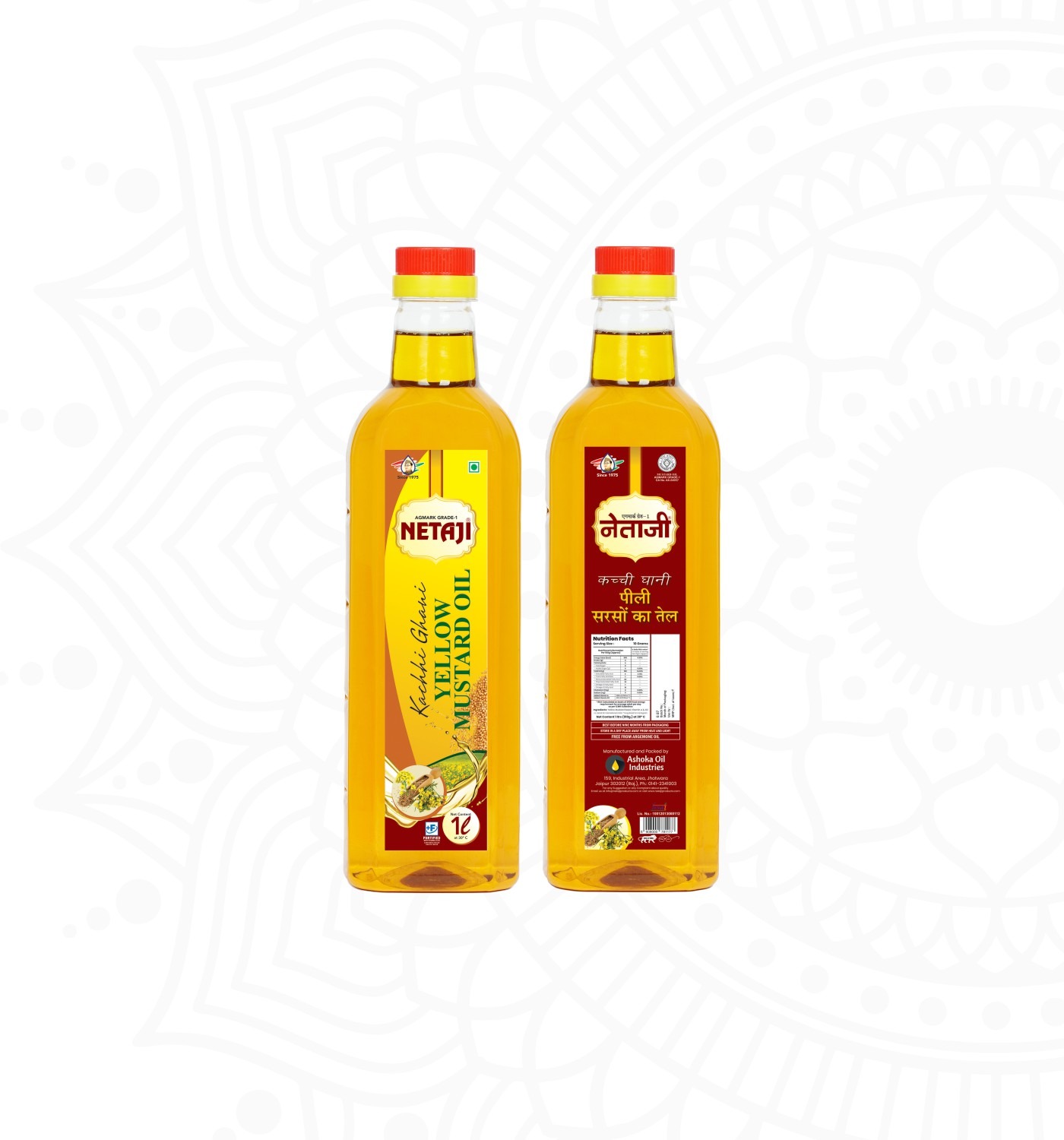Cooking Oil, Mustard Oil
Mustard Oil vs Refined Oil: Guide to Right Cooking Oil For Your Health
Which Oil Should I Choose While Cooking Mustard or Refined?
In the realm of culinary choices, selecting the appropriate cooking oil holds paramount importance, influencing both flavor and health outcomes. Among the myriad options available, Mustard Oil and Refined Oil often stand in the spotlight. However, discerning between the two requires a nuanced understanding of their properties and implications for health. In this comprehensive guide, we delve into the intricacies of Mustard Oil versus Refined Oil, empowering you to make informed decisions aligned with your health goals.
Unveiling Mustard Oil: Nature’s Bounty

Mustard Oil, affectionately known as kachi ghani oil, embodies centuries of culinary tradition in Indian households. Crafted through a natural process involving the crushing of mustard seeds, this oil exudes a distinct pungency and a vibrant golden hue.
Nutritional Proficiency of Mustard Oil
Brimming with monounsaturated fats, omega-3 and omega-6 fatty acids, and glucosinolate, Mustard Oil emerges as a nutritional powerhouse. Essential vitamins A and E, coupled with minerals like iron and zinc, underscore its holistic health benefits.
Harnessing the Advantages of Mustard Oil
- Heart Health Champion: Moderation in consuming Mustard Oil fosters cardiovascular well-being, courtesy of its ability to regulate cholesterol levels. The interplay of monounsaturated fats and omega-3 fatty acids facilitates the reduction of LDL cholesterol while bolstering HDL cholesterol levels.
- Anti-inflammatory Arsenal: Enriched with allyl isothiocyanate, Mustard Oil serves as a potent ally against inflammation, offering respite to individuals grappling with conditions such as arthritis and irritable bowel syndrome.
- Circulatory Catalyst: Mustard Oil’s prowess extends to enhancing blood circulation and optimizing cardiac output. Its therapeutic properties mitigate respiratory ailments and fortify against conditions like emphysema.
Navigating the Pitfalls of Mustard Oil
- Erucic Acid Concerns: Despite its virtues, Mustard Oil harbors elevated levels of erucic acid, which, when consumed excessively, may precipitate health complications like diarrhea and anemia.
- Smoke Point Quandary: The low smoke point of Mustard Oil renders it unsuitable for high-temperature cooking methods, posing limitations in culinary applications.
Decoding Refined Oil: Engineered Elegance
In stark contrast, Refined Oil undergoes a refining process aimed at purging impurities and fortifying its shelf life. Chemical treatments and thermal processing are instrumental in bestowing Refined Oil with its refined demeanor.
Embracing the Merits of Refined Oil
- Elevated Smoke Point: Refined oils, epitomized by vegetable oil and canola oil, boast a higher smoke point, rendering them adept for high-heat culinary endeavors like frying.
- Flavor Neutrality: Refined oils’ neutral taste profile renders them adaptable to a spectrum of culinary creations, allowing other ingredients to shine without overshadowing them.
Confronting the Caveats of Refined Oil
- Nutrient Dilution: The refinement process compromises the nutritional integrity of Refined Oil, siphoning off vitamins and minerals integral to holistic health.
- Chemical Compromise: Chemical interventions during the refining process pose a potential threat to the purity and wholesomeness of Refined Oil, undermining its nutritional pedigree.
Crafting the Optimal Choice
The selection between Mustard Oil and Refined Oil hinges on a confluence of factors, including personal preferences, culinary exigencies, and health imperatives. Mustard Oil emerges as a frontrunner for those prioritizing heart health and anti-inflammatory prowess, albeit with caution regarding erucic acid content. Conversely, Refined Oil, with its elevated smoke point and flavor neutrality, caters to the demands of high-temperature cooking, albeit at the expense of nutritional richness.
In conclusion, the quest for the ideal cooking oil necessitates a judicious evaluation of individual needs and culinary aspirations. Consultation with healthcare professionals or nutritionists can provide invaluable insights, steering you towards the optimal choice aligned with your health aspirations.
Remember, moderation remains the cornerstone of dietary wisdom, regardless of the culinary oil you embrace. Pair your culinary endeavors with a balanced diet and active lifestyle to chart a course towards holistic well-being.
NETAJI Kachi Ghani Mustard Oil

For those inclined towards harnessing the myriad benefits of Mustard Oil, discerning the right brand is imperative. Ashoka Oil Industries, renowned for its NETAJI brand, stands as a beacon of quality and trust in the realm of kachi ghani oil. NETAJI Kachi Ghani Mustard Oil epitomizes purity and authenticity, ensuring a culinary experience steeped in tradition and wholesomeness.

